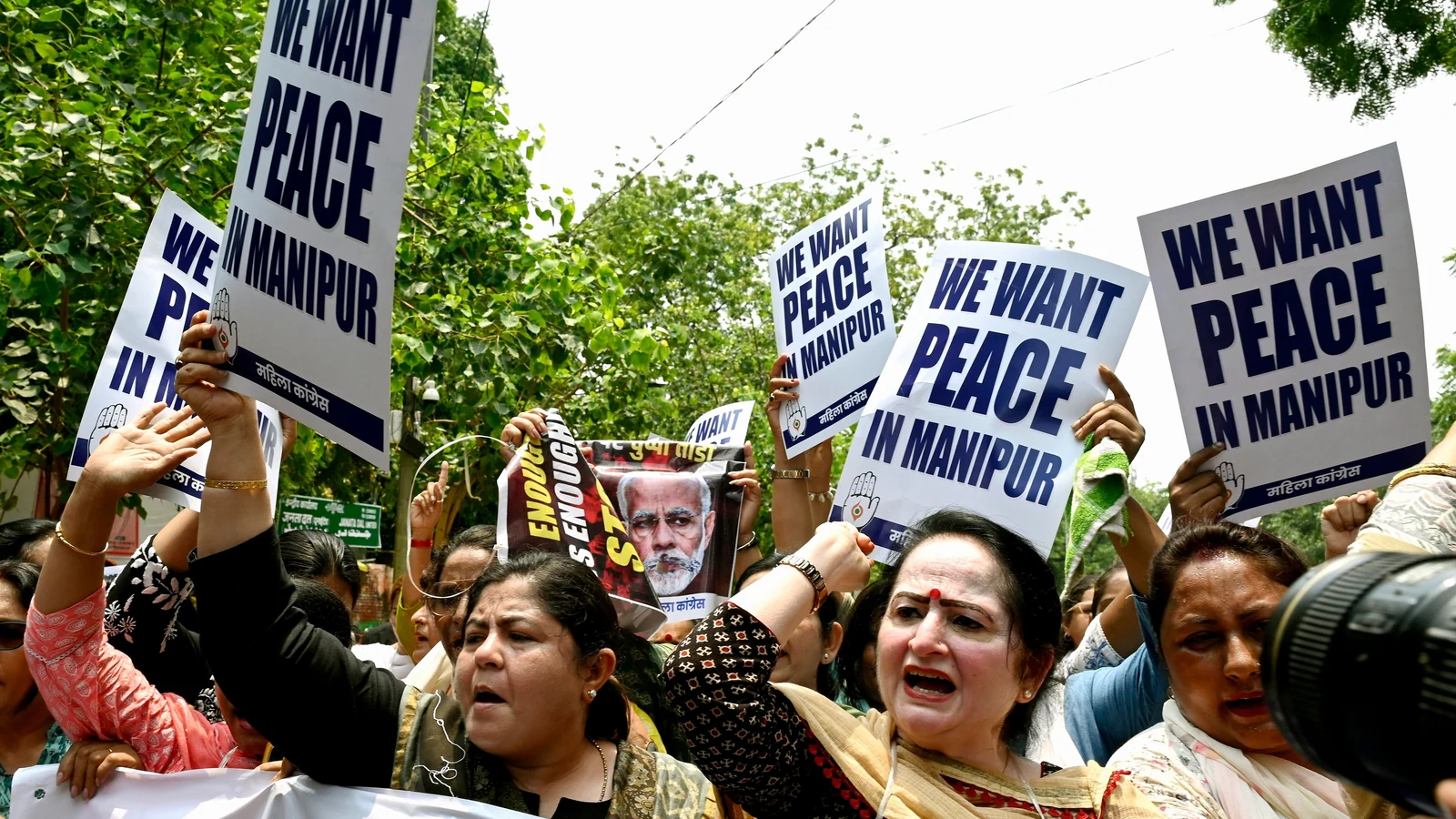Sukhmani Kooner, Pune
The Manipur High Court order that ended up becoming a bone of contention for the Meitei and Kuki ethnic groups of Manipur, was withdrawn on Thursday, February 22. The High Court on March 27, 2023, had directed the state government to consider the inclusion of Meiteis in the scheduled tribes list. This decision was passed on the demands of the Meiteis to protect and preserve their ancestral land, tradition, culture, and language.
Manipur has been a tinderbox of tensions between ethnic groups. The ongoing outbreak of violence transpired between the dominating non-tribal Meiteis of the valley and the tribal Kukis of the hills. Meiteis are a Hindu majority comprising 53% of the population spread over 10% of the total landmass of Manipur. The Kukis and Nagas on the other hand are majority Christians, accounting for 35% of the total population residing over 90% of the total landmass of Manipur.
In October last year, an appeal against this controversial order was heard in the Manipur High Court, which was filed by the All-Manipur Tribal Union. They argued that the tribal community was not made part of the writ petition which led to the 2023 High Court decision being passed.
The Kuki community argues that the Meiteis already are in the majority, both, in terms of population and in terms of political representation. So, they are questioning their demand for also getting the ST status when they are already recognised as OBC (Other Backward Class) and SC (Scheduled Caste).
Justice Golmei Gaiphulshillu pointed out in the recent hearing that the judgment passed by the Manipur High Court was not in accordance with the ruling of the apex court of the country in the case of State of Maharashtra v. Milind & Ors. In the SC case, it was noted that the courts did not have the authority to modify, amend, or alter the ST list.
Manipur as a state has always been wrapped around some dynamic of conflict across its history under Independent India. Conflicts that are simple in their motivations yet multifaceted and complex all the same. Reaching a solution to the state’s woes might serve to be an arduous task in concept yet it’s all the more necessary to begin making inroads as soon as feasible. It requires extensive political will and competency to recognize a path forward that doesn’t end up with us taking steps backwards, but starting off with fleshing out a comprehensive categorization of the lands owned under different models down to a granular level and more concerted efforts towards meeting the motivations of the various ethnic groups regarding their land rights and political representation would serve as a solid step.
